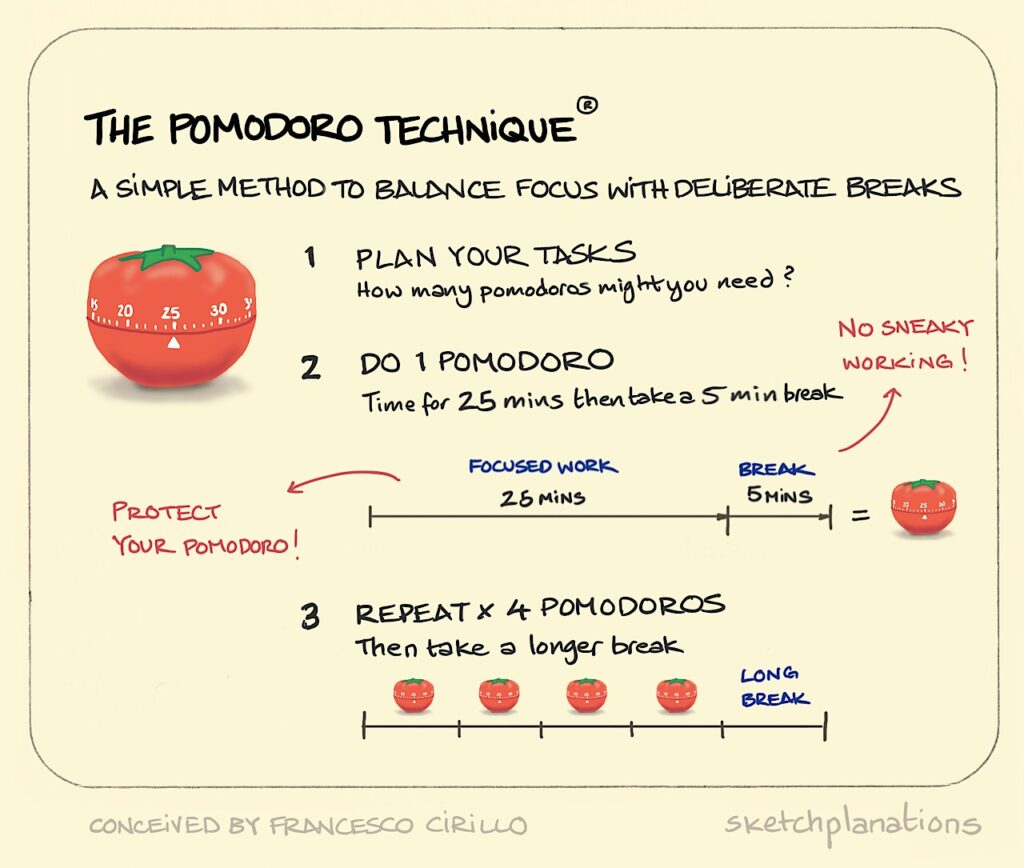Time—it always feels like there’s never enough of it, right? Between classes, job applications, networking, and trying to have a social life (or at least remember what fresh air feels like), managing time can feel like a losing battle. But here’s the good news: time management isn’t about doing more; it’s about doing things smarter. And once you master it, you’ll wonder how you ever survived without it.
Why Should You Care About Time Management?
First things first—why does this even matter? Well, a study by Timewatch Plc. shows that people overwhelmingly agree that better time management increases productivity, reduces stress at work, improves focus on tasks, increases self-confidence and improves their reputation at work
That means fewer all-nighters, less panic-scrolling through LinkedIn job listings at 2 AM, and more time for things that actually matter (like sleep).
For job seekers, especially recent grads, how you use your time can make or break your job search. It’s not just about how many applications you submit but whether you’re applying strategically, networking effectively, and upskilling in ways that actually boost your employability. Employers want candidates who can juggle priorities, meet deadlines, and stay organized—so mastering time management isn’t just about your sanity; it’s also about your career prospects.
Just Before You Go
Empower individuals to overcome barriers, gain essential skills, and secure gainful employment through our proven programs—KeelMaster, KeelWings, and KeelMate. Your support can spark change and build brighter futures.
Donate Now
Time Management Strategies That Actually Work
-
The Eisenhower Matrix: Because Not Everything Is Urgent
Not all tasks deserve your immediate attention—despite what your inbox (or your mom) might say. The Eisenhower Matrix helps you categorize tasks based on importance and urgency:
- Urgent & Important: Drop everything and do it now (e.g., prepping for an interview tomorrow).
- Important but Not Urgent: Schedule it (e.g., taking that online course to boost your skills).
- Urgent but Not Important: Delegate if possible (e.g., minor admin tasks—yes, even asking AI to draft emails counts!).
- Neither Urgent Nor Important: Eliminate it (e.g., doom-scrolling Twitter for the fifth time today).
Using this framework keeps you from feeling busy but getting nothing important done.
-
The Pomodoro Technique: Work Smarter, Not Longer
Ever spent hours “working” only to realize you actually just stared at your screen, clicked between tabs, and accomplished nothing? Enter the Pomodoro Technique—work in 25-minute sprints, then take a 5-minute break. This method helps you stay focused, prevents burnout, and makes tasks feel more manageable.

Image Source: https://sketchplanations.com/the-pomodoro-technique
This works especially well for job hunting. Instead of mindlessly scrolling job boards for hours, set a Pomodoro timer for focused application sessions—quality over quantity.
-
Plan Your Day the Night Before: Future You Will Thank You
Waking up without a plan is like trying to cook without a recipe—you’ll waste time and probably end up with a mess. Spend five minutes each night planning your next day. Apps like Todoist, Notion, or Google Calendar can help organize your schedule so you wake up knowing exactly what needs to get done.
-
Set SMART Goals: No More Vague Aspirations
Saying “I want to learn coding” is nice, but saying “I will complete a Python course on Coursera in four weeks” is SMART (Specific, Measurable, Achievable, Relevant, and Time-bound). SMART goals give you direction and motivation—so you actually finish what you start.
-
Learn to Say No: Protect Your Time Like It’s Your Last Slice of Pizza
Overcommitting is the fastest way to burn out. You don’t have to accept every opportunity, every request, or every group project task that no one else wants to do. Prioritize what truly matters, and say no to the rest (politely, of course).
For recent grads, this means focusing on opportunities that align with your career goals rather than saying yes to everything just to stay busy.
How This Helps You Land (and Keep) a Job
Once you enter the working world, time management becomes even more crucial. Deadlines are real, multitasking is a daily necessity, and bosses don’t want to hear “I lost track of time” as an excuse.
Employers value candidates who can prioritize, stay organized, and meet deadlines without constant supervision. So whether you’re job hunting or starting your first role, these skills will make you stand out (and help you avoid unnecessary stress).
Final Thoughts
Time management isn’t about cramming more into your day—it’s about using your time wisely. Small changes can make a huge difference, whether it’s planning ahead, cutting distractions, or setting clear goals.
Want to take your career skills up a notch? Check out this blog on upskilling—a must-have skill for navigating the workplace!
Just Before You Go
Empower individuals to overcome barriers, gain essential skills, and secure gainful employment through our proven programs—KeelMaster, KeelWings, and KeelMate. Your support can spark change and build brighter futures.
Donate Now


